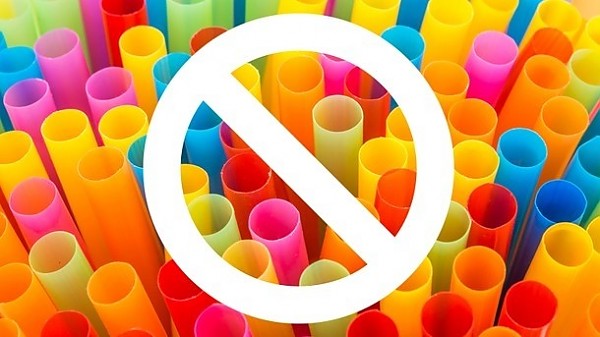
PICTURE A WORLD WITHOUT PLASTIC STRAWS. Imagine drinking iced lattes and sodas as a little more perilous—and messy. Mop it up and bring those thermoses from home, because Seattle will soon be a city without plastic straws or utensils.
Back in 2010, Seattle City Council approved a bill to eliminate plastic utensils from restaurants as a way to reduce marine pollution. That legislation goes into effect in July 2018, requiring more than 4,500 food service businesses to provide compostable or recyclable options. But when the Lonely Whale Foundation chose Seattle to promote a campaign against plastic straws in September 2017, city officials went even further—then-mayor Ed Murray announced he would add straws to the list of plastic items he’ll be eliminating.
In the meantime, more than 150 of the city’s businesses participated in the September campaign to ban single-use plastic straws, eliminating two million in one month alone. It gave us a preview of what the ban will look like next year: Order a drink anywhere in Seattle city limits and, depending on the restaurant, you’ll need to ask for a straw. When it comes, it will be compostable or, like in the case of CenturyLink Field, an even more environmentally friendly paper straw.
“It does seem silly, right? A straw?” said Lonely Whale Foundation executive director Dune Ives. Entourage actor Adrian Grenier, cofounder of the group, gave interviews at the campaign launch and pushed the hashtag #stopsucking. Is it just a comically small step in the face of climate change deniers and the federal administration, which in June withdrew the U.S. from the Paris climate accord?
The problem itself is no joke; Americans slurp through more than 500 million single-use plastic straws a day. Those straws aren’t supposed to make it to the ocean—but they do, from human error, littering, or falling out of overfilled trash cans and transport vehicles. Plastic ends up in marine wildlife: In 2010 researchers discovered a dead gray whale stranded on a West Seattle beach with more than 20 plastic bags, surgical gloves, sweat pants, duct tape, a golf ball, and other plastic pieces left undigested in its stomach. Scientists estimate that by 2050, there will be more volume of plastic than fish in the oceans.
“The bottom line is this: We are creating plastic pollution at an unprecedented scale, and we cannot clean or recycle it fast enough,” says Jim Wharton, director of conservation and education at the Seattle Aquarium. “The only solution is for us to reduce the flow of plastic into the ocean.”
Seattleites know better than anybody—tangible change starts small. In 2011 Seattle made national headlines for banning plastic bags and charging five cents per paper sack to reduce pollution and encourage grocery shoppers to bring their own reusable totes. In 1988 the city required that yard waste be separated from garbage; Seattle now composts 98 percent of all yard rubbish, while recycling nearly 60 percent of its total waste last year.
“There are so many ocean health issues that are insurmountable,” Lonely Whale Foundation’s Ives says. “For us, we wanted to give something to the everyday person that they could engage in and feel like they’re making a difference.”
The plastic straw ban could make Seattle a national leader in green policy. The Lonely Whale Foundation wants to extend the campaign to another 15 major cities by next year and eventually reduce the national straw count by billions. When the Strawless in Seattle campaign launched at the Seattle Aquarium in early September, Adrian Grenier thanked the city for being the progressive place it claims to be.
“We wanted an easy win to show that it’s possible to create that model so that we can replicate it around the country,” Grenier says. It’s working. Cities have been voicing their interest to be the next focus in the campaign.
The city ordinance isn’t perfect. For one thing, compostable straws and utensils—you know, the brown forks that melt in hot Cup Noodles—are just as harmful to the environment as plastic straws if they bypass composting facilities and end up in landfills. Only plastic straws are banned, and waiters might not automatically bring compostable or paper straws instead; customers will need to ask for them. While Starbucks didn’t participate in September’s ban, the company did place ads near its cash registers touting the Strawless in Seattle campaign that it wasn’t a part of. We all have to start somewhere.
Starting small, Seattle hopes to move mountains—or at least stop mountains of plastic trash from piling up in our oceans.